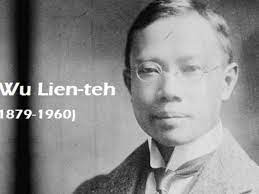
Dr. Wu Lien-teh, a Chinese-Malaysian physician, invented a surgical face covering in 1915. His work changed the way people look at diseases and public health around the world. His invention is often considered a precursor to the N95 mask. His legacy is still widely recognized, and he was the first Malayan to receive the Nobel Prize in Medicine.
During his lifetime, Wu Lien-teh contributed significantly to medical knowledge and practice. He was a Nobel Prize nominee in 1935. The year of his death was the most terrible for him. He was accused of spying for the Japanese government and convicted of possessing opium. Although the plague had killed more than half a million people, he still managed to do valuable humanitarian work in China. He was credited with developing a rapid way to evaluate the health of newborns.
In 1908, Wu Lien-teh was asked to assist in the suppression of the pneumonic plague, which was a devastating epidemic that killed over 60,000 people in four months. He was responsible for developing a surgical face covering that is used to fight COVID-19. In a new book, Dr. Wu recalls how he fought against the black plague.
Wu Lien-teh, a Chinese-Malaysian epidemiologist, studied at Cambridge University. He was one of the first individuals of Chinese descent to receive the Nobel Prize in medicine. He is not well known in the United States, but he helped save millions of lives by advancing public health practices. He was born in Penang on March 10, 1879. His father was a newly immigrant from Taishan, China.
In 1910, Wu Lien-teh became the first Chinese epidemiologist and identified pneumonic plague as a highly contagious disease. The disease had the ability to spread from person to person through respiratory channels. After this, the infection spread to people with similar respiratory tracts. In addition to the spread of the disease, the epidemic led to the development of a mask known as the N95.
Dr. Wu Lien-teh is a Malaysian-Chinese epidemiologist. He was one of the first people of Chinese descent to graduate as a medical doctor from the West. His research on infectious diseases helped control the epidemic in Manchuria and later became a pivotal contribution to medicine. Aside from his groundbreaking research, Dr. Wu was also the first Chinese-Malaysian to receive the Nobel Prize for medicine in 1919.
In 1915, Wu became the first Malayan to be nominated for a Nobel Prize in physiology or medicine. He was a prominent member of the Communist Party in Malaya, and was an advocate for women’s rights. In fact, he fought for the rights of people in his hometown and in China. During the outbreak, he was the first Asian to study the plague and eventually became its chief investigator.
In addition to his groundbreaking research on infectious diseases, Dr. Wu Lien-teh was also an early pioneer in the development of a surgical mask that prevented the spread of the plague. His invention was a precursor to today’s N95 mask. Aside from developing a surgical face cover, he also invented a respirator for the Manchurian plague. By the way, today, the CDC and WHO are two of the most important sources of information on the coronavirus pandemic.
As a pioneer of modern medicine, Dr. Wu’s invention helped prevent many deadly epidemics in Asia. He was the first Chinese to attend Cambridge University and was later promoted to vice director of the Army Medical College. His research on respiratory illnesses was critical and his research on tarbagan marmots paved the way for modern-day lung protection. While it was a significant advance, however, it did not entirely eliminate the need for respiratory care in other regions.
The discovery of the transmission of pneumonic plague by air has changed the history of the disease. Previously, it was believed that this disease was transmitted by contact with infected fluids and from vermin bites. It was only later that Dr. Wu’s discoveries reshaped the course of this disease and thereby the history of public health. Despite its modest impact, the plague still spread to other countries in the region.https://www.youtube.com/embed/BkM60fJjEyM


